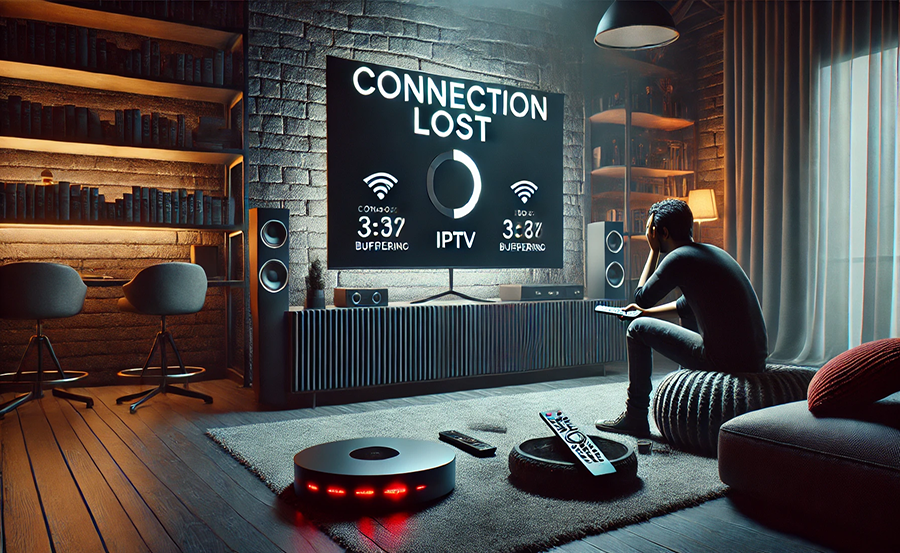
IPTV (Internet Protocol Television) is a popular way to stream live TV and on-demand content, but one of the most frustrating issues users face is buffering. Buffering happens when your IPTV stream pauses, skips, or loads slowly, interrupting your viewing experience. While buffering can be caused by a variety of factors, the good news is that many of these issues can be fixed with some troubleshooting.
In this guide, we’ll go through the common causes of IPTV buffering and provide solutions to help you enjoy a smoother streaming experience.
How to Fix IPTV Buffering: Best Complete Guide 2025
1. Check Your Internet Connection Speed
One of the main reasons IPTV buffers is due to a slow or unstable internet connection. IPTV requires a stable, high-speed internet connection to stream content smoothly.
Solution:
- Test your internet speed: You can use online tools like Speedtest.net to check your internet speed. IPTV streaming typically requires at least 10 Mbps for standard definition and 25 Mbps or more for HD and 4K content.
- Switch to a wired connection: If you’re using Wi-Fi, switching to a wired Ethernet connection can provide a more stable connection and reduce buffering. Wi-Fi signals can sometimes fluctuate, leading to interruptions in the stream.
- Restart your router/modem: Sometimes, a simple restart of your router or modem can fix connection issues and improve your internet speed.
2. Reduce Network Congestion
If multiple devices are using your internet connection at the same time (such as other people streaming videos, downloading files, or gaming), this can lead to network congestion, causing IPTV buffering.
Solution:
- Limit devices using the internet: Turn off any devices or apps that are using a large amount of bandwidth while you’re watching IPTV.
- Use Quality of Service (QoS) settings: Some routers have a QoS feature that allows you to prioritize IPTV streaming over other internet activities. Check your router’s manual to see if you can enable QoS.
3. Change IPTV Streaming Server
Sometimes the issue is not with your internet connection but with the IPTV server you’re streaming from. If the server is overloaded with too many users or experiencing technical difficulties, you may experience buffering.
Solution:
- Switch to a different IPTV server: Many IPTV services allow you to switch between servers or streams. If you’re experiencing buffering, try selecting a different server from the channel list in your IPTV app.
- Use a reliable IPTV provider: Not all IPTV services are created equal. If buffering is a recurring issue, it might be worth considering switching to a more reliable provider with better servers and faster streaming.
4. Optimize Your IPTV App Settings
IPTV apps often have settings that can be adjusted to reduce buffering, such as adjusting the streaming quality or buffer size.
Solution:
- Lower the streaming quality: If you’re experiencing buffering while streaming in HD or 4K, try lowering the quality to 720p or even 480p. This reduces the amount of data being streamed, which can improve performance on slower internet connections.
- Increase the buffer size: Some IPTV apps allow you to adjust the buffer size. Increasing the buffer can give the stream more time to load, reducing interruptions.
5. Use a VPN to Avoid ISP Throttling
Internet Service Providers (ISPs) may throttle (slow down) your internet speed when they detect that you’re streaming large amounts of data, such as IPTV content. This can cause buffering issues, especially during peak hours.
Solution:
- Use a VPN (Virtual Private Network): A VPN can hide your streaming activity from your ISP, preventing throttling. When choosing a VPN, look for one that offers fast speeds and unlimited bandwidth to ensure smooth IPTV streaming.
- Choose a nearby server: If using a VPN, make sure to connect to a server that is geographically close to your location to minimize speed loss.
6. Upgrade Your Router or Streaming Device
Outdated routers or streaming devices may not be able to handle the demands of high-quality IPTV streaming, leading to buffering issues.
Solution:
- Upgrade your router: If you’re using an old router, consider upgrading to a newer model that supports higher speeds and better performance for streaming.
- Check your streaming device: If you’re using an older set-top box or streaming stick, upgrading to a newer device with more processing power and better Wi-Fi reception can help reduce buffering.
7. Clear Cache and Data on Your IPTV App
Over time, IPTV apps can accumulate cached data, which can slow down the app and cause buffering issues.
Solution:
- Clear the cache: Go into your IPTV app’s settings and clear the cache or data. This can help improve the performance of the app and reduce buffering.
- Reinstall the app: If clearing the cache doesn’t help, try uninstalling and reinstalling the IPTV app. This will give you a fresh start and may fix any performance issues.
8. Close Background Apps
If you have multiple apps running in the background, it can consume valuable system resources and internet bandwidth, leading to IPTV buffering.
Solution:
- Close unnecessary apps: Before streaming IPTV, close any background apps that may be consuming bandwidth or resources on your device.
9. Schedule Viewing During Off-Peak Hours
If you notice buffering issues mainly during specific times of the day, such as in the evenings, it could be due to peak usage hours when many people are streaming content.
Solution:
- Watch during off-peak hours: If possible, try to schedule your IPTV viewing during times when fewer people are online, such as early in the morning or late at night.
10. Check for IPTV App Updates
Sometimes IPTV apps release updates that fix bugs or improve streaming performance. Using an outdated version of the app can cause buffering.
Solution:
- Check for updates: Regularly check for updates in your IPTV app’s settings or in the app store. Updating to the latest version can help improve streaming quality and fix buffering issues.
Conclusion
Buffering can be a frustrating issue, but by following these troubleshooting steps, you can significantly reduce or even eliminate IPTV buffering. Make sure you have a stable internet connection, optimize your streaming settings, and use a reliable IPTV provider to enjoy a smooth, uninterrupted viewing experience.
If you’re still experiencing issues after trying these fixes, it may be worth reaching out to your IPTV provider for further assistance or considering switching to a more reliable service.



